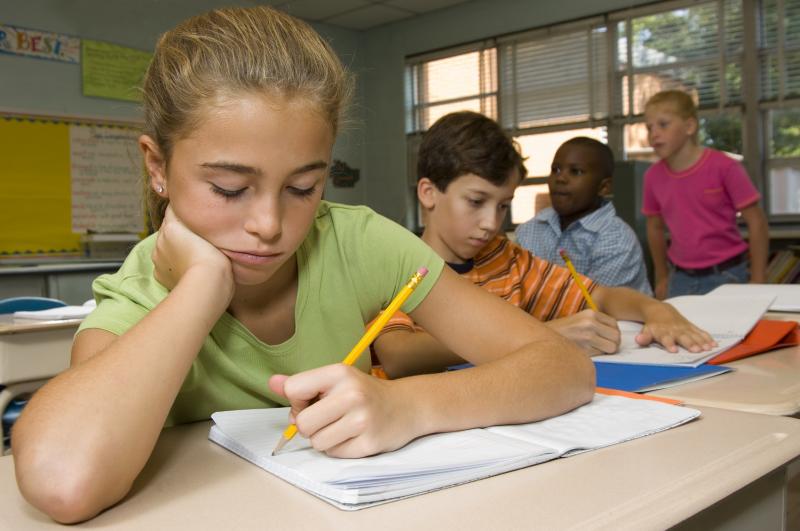The recent news that an English teacher has been struck off, partly owing to the fact her lessons were deemed ‘boring’ by her pupils, has left me incensed.

I don’t wish to comment on this personal case – especially owing to the fact there were various factors leading to her dismissal – but the fact that ‘boring’ was even part of the dialogue disturbed me.
My experiences as a secondary school English teacher were challenging, to say the least. After working for ten years in journalism, swapping an air-conditioned office for a rowdy classroom was a culture shock. As a slightly-older-than-average NQT, I still ignored the age-old advice to ‘never smile before Christmas’ – what was wrong with being friendly? Moreover, I intended every lesson to be thrilling and awe-inspiring. The last thing I wanted was for my pupils to be bored. Heaven forbid.
And so, in the weeks running up to the first day of term, I spent late nights and long weekends devising lessons that would have them on the edge of their seats, from carousel games on Shakespeare to English grammar ‘speed dating’. I wanted to make my lessons relevant to the pupils’ worlds, so I learned about the latest trends, the coolest rappers and new slang. As I sat amidst mountains of Pritt Stick and coloured paper, some ghastly Kanye West song playing in the background, there was a niggle that something wasn’t ‘quite right’ but I couldn’t put my finger on it.
Day one arrived and I faced my first Year 10 class brimming with excitement. Undaunted by the initial remonstrance that ‘Shakespeare was an idiot’ (well, that’s the censored version) and ‘sooo boring’, I was ready to show them otherwise.
Ten minutes later and the class was in utter chaos. My carefully-laminated bits of card were scattered on the floor, task sheets had been made into paper hats or covered in graffiti (and we’re not talking artistic replications of the Mona Lisa) and my heart was sinking. ‘How ungrateful,’ I thought petulantly. ‘I spent all my weekend, my free time, trying to inspire you, to make the lesson fun, and this is the thanks I get?’
To cut a long story short, I learned the hard way that these kinds of ‘exciting’, unpredictable lessons did not wash with my pupils: besides, many of them had enough unpredictability at home. My focus on fun had eclipsed the most important goal of learning. It took me a long time to learn that this Year 10 class wanted structure, focus and to feel a real sense of progress and – oddly enough – this meant that lessons had to be (gasp) relatively boring.
And here’s the rub. Being bored can be a good thing. During those long summer-term lessons when everyone’s hot and tired and you’re pacing the room reading extracts from To Kill a Mockingbird, there’s nothing very heart-stopping, feel-the-wind-in-your hair about that. There are no tenuously relevant rap songs to perk everyone up. Pupils have to concentrate. It’s unfamiliar and difficult. And most will, therefore, deem it boring.
But I would argue that it’s these lessons that really build character. It’s where the pupil (not the teacher) has to be resourceful; they have to muster their own energies and dig beneath the surface. In doing so, they are empowered to switch an atmosphere of apathy and ennui to a healthy, heated debate. Besides, getting down to semantics, boring is by definition something that causes ‘mental weariness’ and is ‘fatiguing’. Bring on the weariness! That is how we get stronger (thank you, Kanye). It should be a challenge.
And, let’s face it, life is not always fun – mortgages, train delays and tax returns lay that to bed. If we entertain the socks off these pupils they will go out into the world expecting everyone to wear a clown suit, for work meetings to be interspersed with amusing baby panda clips.
Most importantly, boring is what you make of it: anything can be boring if you so choose it to be and, vice versa, anything can be interesting. What a remarkable skill to foster in the next generation: to encourage resilience and resourcefulness; to generate an innate curiosity even if, at first glance, something may not appear to be that enticing.
Fast-forward to the summer term with the same Year 10 class studying Yeats. The room was silent – you could almost hear the cogs of their brains working. There were no ridiculous hats or colourful board games… and not a hint of Kanye West in sight.
One could have easily passed by my classroom door and deemed the lesson to be ‘boring’. There was a ‘boring’, predictable structure to my lessons. There was a ‘boring’ task which pupils had to choose independently, something which stretched them. The silence was ‘boring’. The students were not playing or laughing; they were bent over their books with furrowed brows.
And so, just halfway through the lesson, these pupils already had tangible proof of their hard work, commitment and thinking. Already they were showing resilience and strength of character. They were learning.
Tell me what’s so boring about that.